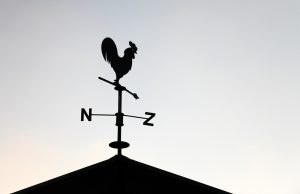Imagine you are a prime contractor to a Department of the United States of America supplying logistical support for the war on terrorism in Afghanistan. As the prime, you are kicking on all cylinders, including purchasing comprehensive Employer’s Liability, Workers’ Compensation and Defense Base Act (DBA) insurance to cover your own employees against a worker injury claim abroad.
Then the phone rings.
 A 30-year-old American worker hired by your subcontractor working on base encountered a swarm of bees while painting; he fell and was crippled. The sub isn’t paying his medical expenses and is apparently nowhere to be found. The injured employee’s bulldog lawyer is on the line threatening to sue your company directly for his client’s devastating injuries.
A 30-year-old American worker hired by your subcontractor working on base encountered a swarm of bees while painting; he fell and was crippled. The sub isn’t paying his medical expenses and is apparently nowhere to be found. The injured employee’s bulldog lawyer is on the line threatening to sue your company directly for his client’s devastating injuries.
How can this be?
DBA coverage is workers’ compensation insurance that employers may turn to in the event that an employee is injured while working on a contract financed by the U.S. Government and performed outside the United States. Section 5(a) of the Act provides that “a contractor shall be deemed the employer of a subcontractor’s employees if the subcontractor fails to secure the payment of compensation.”
 Policyholder Pulse
Policyholder Pulse



 a covered “occurrence” because the damage was purportedly not unintended or unexpected. In recent years, however, courts have shifted course; the majority of courts have found that property damage arising out of faulty workmanship constitutes an “occurrence” under standard-form CGL policies. Additionally, some states enacted legislation requiring CGL policies to define occurrence to include property damage or bodily injury resulting from faulty workmanship, or have made it easier for insureds to obtain coverage for damages as a result of work the insureds performed.
a covered “occurrence” because the damage was purportedly not unintended or unexpected. In recent years, however, courts have shifted course; the majority of courts have found that property damage arising out of faulty workmanship constitutes an “occurrence” under standard-form CGL policies. Additionally, some states enacted legislation requiring CGL policies to define occurrence to include property damage or bodily injury resulting from faulty workmanship, or have made it easier for insureds to obtain coverage for damages as a result of work the insureds performed. coverage, which covers certain cost increases resulting from project delay (think higher finance costs). Typically, though, when a construction project experiences an unanticipated delay, everyone—the owner, the builder, the subcontractors and suppliers—is interested in getting the project back on schedule. So owners sometime also get “Expense to Reduce the Amount of Loss” (ERAL) coverage, which covers the cost of accelerating the project to get it back on schedule (think higher costs for additional construction crews and overtime). But if you have both “Soft Cost” and ERAL coverage, do they cancel each other out?
coverage, which covers certain cost increases resulting from project delay (think higher finance costs). Typically, though, when a construction project experiences an unanticipated delay, everyone—the owner, the builder, the subcontractors and suppliers—is interested in getting the project back on schedule. So owners sometime also get “Expense to Reduce the Amount of Loss” (ERAL) coverage, which covers the cost of accelerating the project to get it back on schedule (think higher costs for additional construction crews and overtime). But if you have both “Soft Cost” and ERAL coverage, do they cancel each other out?

 any good, you give the restaurant a date, time, and number of people. So why should insurers be able to issue reservations of rights where they quote half the policy and say they may deny coverage at some time, based on some unspecified provision? The South Carolina Supreme Court was presented with that question and decided that insurers need to provide greater specificity or risk losing their reservations completely.
any good, you give the restaurant a date, time, and number of people. So why should insurers be able to issue reservations of rights where they quote half the policy and say they may deny coverage at some time, based on some unspecified provision? The South Carolina Supreme Court was presented with that question and decided that insurers need to provide greater specificity or risk losing their reservations completely.


 Thus, it is imperative that contractors have the right pollution coverage in place to remain secure and profitable.
Thus, it is imperative that contractors have the right pollution coverage in place to remain secure and profitable.